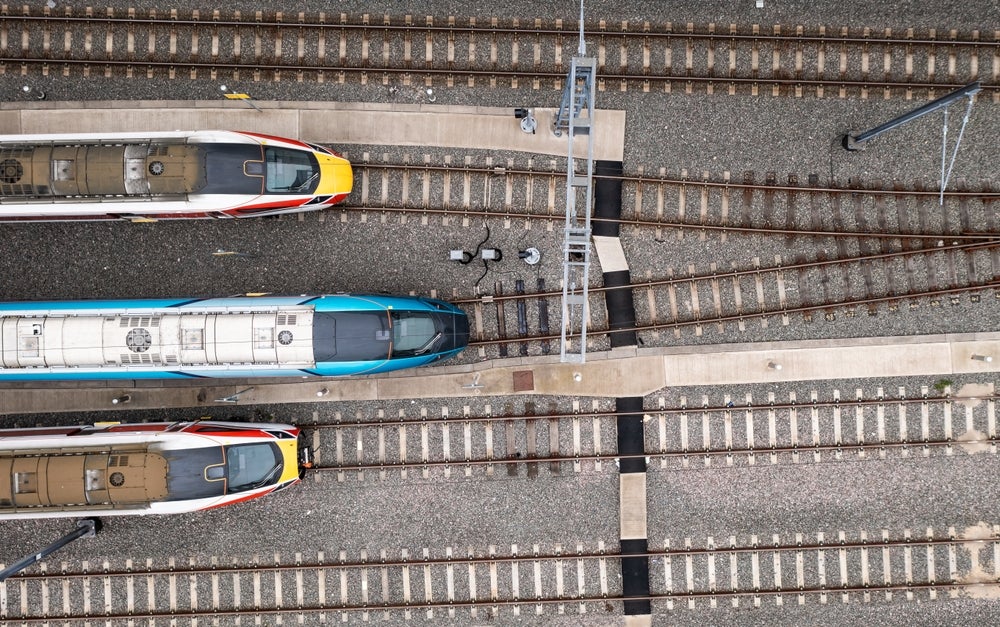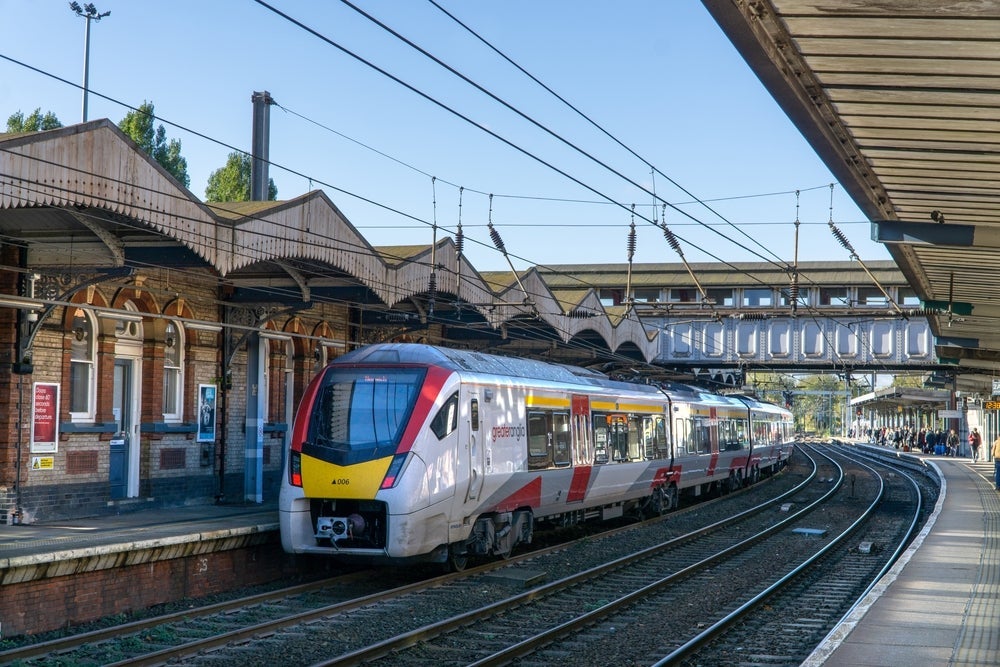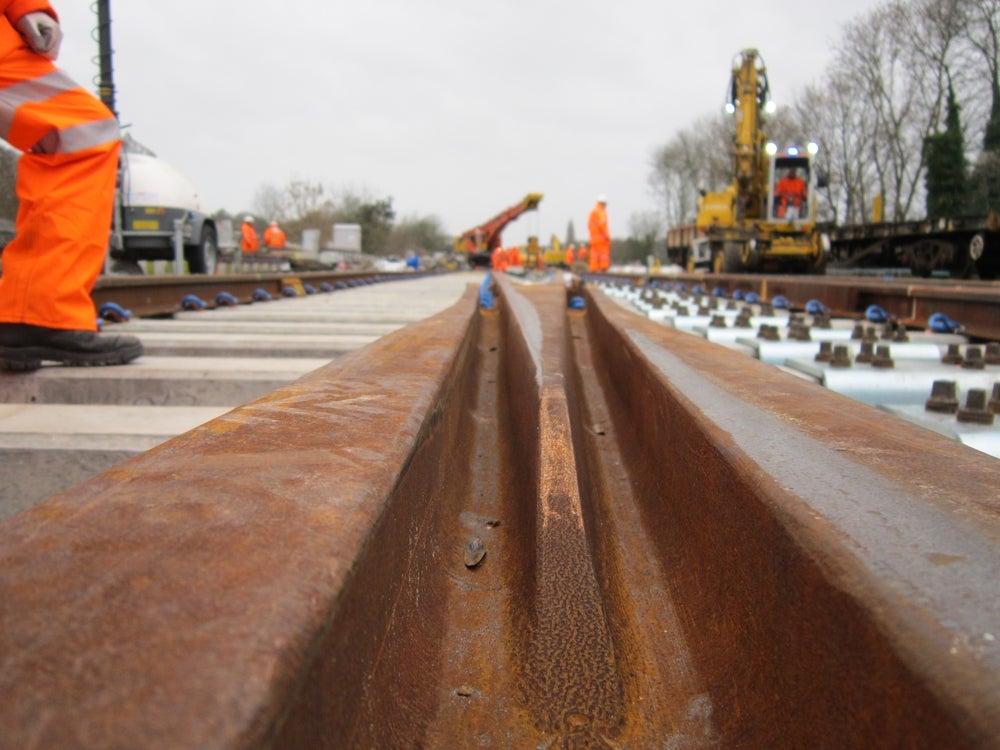
In our railway industry predictions piece last year, we highlighted how the rail sector in 2023 would need to focus on its continued post-pandemic recovery, highlighting staffing levels and sustainability goals, as well as maintaining stable services in order to maintain a certain level of customer trust and satisfaction.
In reality, you could argue fairly comfortably that 2023 was a year of turmoil for rail – in the UK at least – with continued strikes from trade unions disrupting services, train operators struggling to operate due to staff shortages, and the UK Government axing major infrastructure projects designed to ease the strain on ageing infrastructure and struggling to follow a coherent strategy in its attempt to ‘reform’ the railway.
So looking ahead, what will the next year have in store for rail? We hear from those in the industry, finding what their railway industry predictions are and the key industry themes to look out for in the railway sector in 2024.
“If we’re going to win back business travel as an industry, we need to make it easy.”
“2024 could be the year in which rail starts to realise the potential market that business travel offers – not only returning to pre-Covid-19 levels but moving beyond, thanks in part to increasing sustainability considerations.
“Research we carried out shows nine out of ten UK SMEs expect to do more business travel this year. With growing regulatory and legislative pressures on companies to reduce emissions, the carbon footprint of this travel will come under increasing scrutiny. There are also internal pressures on businesses to be more sustainable, with our research finding that over half (53%) of UK business travellers would prioritise working for an employer who supports low-carbon travel over one who does not.

“This backdrop provides a big opportunity for rail to help organisations to keep travelling with a lower carbon footprint. However, to ensure this leads to a truly modal shift to rail, we need to seize the momentum and ensure we can meet demand. Put simply, if we’re going to win back business travel as an industry, we need to make it easy and more attractive for travellers to choose rail.
How well do you really know your competitors?
Access the most comprehensive Company Profiles on the market, powered by GlobalData. Save hours of research. Gain competitive edge.

Thank you!
Your download email will arrive shortly
Not ready to buy yet? Download a free sample
We are confident about the unique quality of our Company Profiles. However, we want you to make the most beneficial decision for your business, so we offer a free sample that you can download by submitting the below form
By GlobalData“A key focus must be on enhancing the user experience by ensuring business booking platforms are more consumer-friendly. Business travellers increasingly expect a personalised, seamless digital experience akin to when they book leisure trips – it’s the same traveller, but all too often a very different booking experience. The more we develop seamless business travel booking – plus popular features like split-ticketing – the greater the share of the business travel market rail can win.”
“It is likely that political uncertainty will lead to disruption, indecision, and insecurity.”
“Fulfilling the UK’s net-zero commitments hinges on the delivery of a low-emission rail network. The task of decarbonising transport will be one of the driving forces of 2024. It’s no secret that this transition presents huge political, technological, economic, and social challenges. Electrification will play an increasingly pivotal role, with commitments to invest and progress a coordinated and national electrification programme needed to be accelerated.
“The next twelve months will also see regional projects and commitments prioritised and aimed at delivering solutions for urban mobility across the rail network. This can only be delivered by collaboration across key stakeholders to deliver rail systems which are reliable, affordable, equal and accessible.

“However, increased collaboration at every level will require a commitment to long-term decisions supported by policy, legislation, and an enhanced regulatory framework. The workability of the new minimum service levels legislation will be played out and the outcomes will impact the future of rail for the next decade.
“Recent years have been beset by a prevalence of short-term political decision-making, which has prioritised immediate gains over long-term benefits. This approach has resulted in delays and volatility in all directions. As we head into an election year, it is likely that political uncertainty will lead to disruption, indecision, and insecurity about the future direction of our rail industry.
“Transport leaders and voices across the private sector must be united in advocating for clarity in policy and planned change which harnesses existing technology, fosters innovation, and holds clear accountability for key bodies in the year ahead.”
“The ‘use it or lose it’ ticketing model of the past doesn’t align with customers’ needs.”
“A key focus for the rail industry will be improved customer communications in 2024. The industry experienced significant disruption in 2023 due to widespread strike action, regular cancellations, and extreme weather events.
“These factors, amongst others, have led to an overall decline in customer satisfaction with the transport sector. According to the January 2024 UK Customer Service Index from the Institute of Customer Service, satisfaction with the sector has fallen by 2.4% year-on-year. I expect to see rail companies increasingly prioritise customer experience improvements to rebuild passenger trust and satisfaction.

“Particularly during service delays or cancellations, proactivity is critical to customer satisfaction. Passengers want and deserve, real-time, transparent updates on delays, alternative travel options, and compensation. I hope we see more flexibility within communications too, specifically around ticket changes and refunds.
“The ‘use it or lose it’ model of the past doesn’t align with customers’ needs. If customer sentiment is to be improved within the sector, there is a need for greater flexibility. Appearing accommodating and supportive of customers’ circumstances will dramatically improve satisfaction with the companies.
“Extreme weather preparedness will become increasingly critical too. As the risk of extreme weather increases at the hands of climate change, rail providers need to ensure they have comprehensive contingency plans to support customers. This includes detailed communication across channels like rail apps, websites, and social media to provide real-time updates on delays or cancellations.
“It is also vital that staffing levels are sufficient to assist with re-booking, refunds, and other needs. Bringing in a flexible outsourcing partner who can scale up service requirements when a weather event occurs, will support the existing team to respond to customer queries quickly and effectively.”
“Market fragmentation has clearly been the undoing of the franchise system.”
“The privatisation vs nationalisation debate is a political question and largely irrelevant to the operation of the railways. We should focus on centralisation, eradicating waste, and putting the customer at the heart of the rail travel proposition. Having a single GBR brand across the network and the removal of such things as operator-only tickets would remove much confusion for the customer.
“Market fragmentation has clearly been the undoing of the franchise system, leaving the customer confused about who to buy their ticket from. Having a situation where a customer can buy a ticket from one operator but not be allowed to use it on a train run by a competitor, despite it leaving the same station and arriving at the same destination, is plainly wrong. This is a classic example of suiting the service provider at the expense of the customer.

“Though it is encouraging to see more passengers return to travelling by train, the peak of revenue achieved in 2018 is still some way off. The UK Government’s response is to increase pricing and to avoid schemes that may have a potential revenue hit. Unfortunately, this will only drive passengers away further.
“The test of best value has been failing for some time and like any business the rail industry needs continued investment to get the basics right, such as punctuality and cleanliness. One phenomenon that seems to become prevalent is operators missing stops or terminating services before their intended destination. This simply should not be allowed.
“Another area of required improvement is the need for simplified fares and more flexible ticketing options. An advanced fare that covers the intended train and two possible departures thereafter, for example, isn’t difficult to offer and would allow passengers to have some flexibility. LNER’s trial is a good example of what can be achieved but we need to move more quickly than a single operator running a two-year trial. Let’s start seeing these issues from the customer’s perspective and make the necessary changes.”






